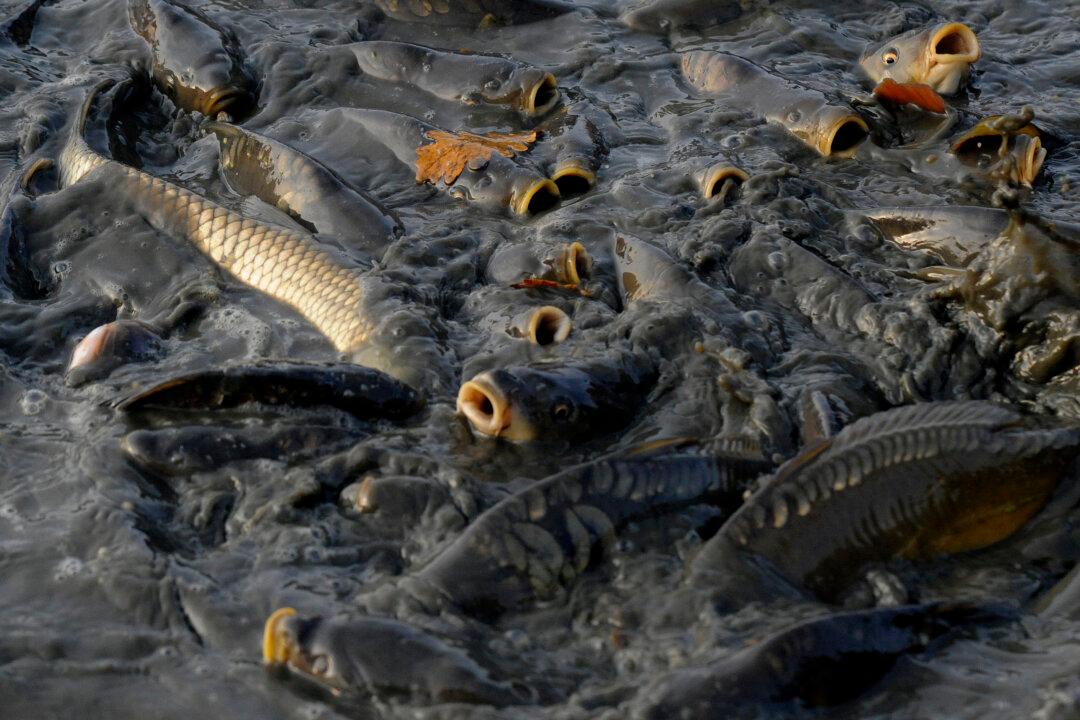The Australian government announced on May 1 it will allocate $15 million to develop a national carp control plan, a major pest in the country’s rivers since the 1960s.
A virulent strain of herpes virus will be released into the Murray-Darling river system in an effort to eradicate European carp according to the Australian Broadcasting Corp. (ABC).
Scientists at the Commonwealth Scientific and Industrial Research Organization (CSIRO) say the plan will focus on reducing the carp population, while minimizing disruption to industries, communities, and the environment.
While calling it a “carp-aggedon,” Science Minister Christopher Pyne said the herpes strain cyprinid herpesvirus-3 would be released in 2018.
The CSIRO said tests of the virus in the high-security Fish Diseases Laboratory at the Australian Animal Health Laboratory have shown that the same virus kills Australian carp, and fast.
Carp are widely believed to have detrimental effects on native aquatic plants, animals, and general river health, particularly through their destructive feeding habits, according to Australia’s fishing and agriculture site.





